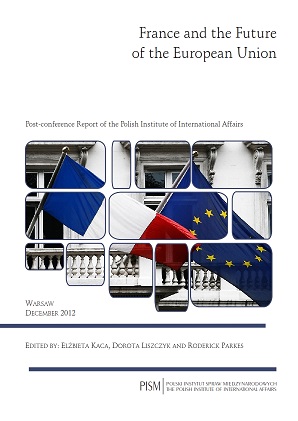France after the Elections and the Future of the European Union
France after the Elections and the Future of the European Union
Author(s): Olga Cichowlas
Subject(s): Supranational / Global Economy, Economic policy, Government/Political systems, International relations/trade, Economic development, Geopolitics
Published by: PISM Polski Instytut Spraw Międzynarodowych
Keywords: France; French elections; European Union; national and EU policies; economic policy; economic growth; Eurozone crisis;
Summary/Abstract: The outcome of May’s French presidential elections reflected the will for change in France, in relation to both domestic and EU policies. Like numerous Member States, France is currently economically weak and requires extensive reform. Simultaneously, the European Union is experiencing a triple crisis in the economy, governance and political legitimacy. Low mobility and varying degrees of competitiveness between the countries that share the same currency sap the Union’s resources; inter-governmentalism, introduced as a replacement for the community method, has failed as a mode for solving the eurozone crisis; and European citizens increasingly view the EU with scepticism. In this context, François Hollande’s victory held out the promise of an improved political atmosphere for the discussion of EU policies and a novel means to deal with the eurozone’s long-standing financial crisis. By opening Franco-German cooperation to other Member States and broaching the debate on the EU’s “pro-growth agenda,” the French Socialist president is trying to reshape policies on both a national and European scale. François Hollande’s efforts to distance himself from his predecessor, Nicolas Sarkozy, are particularly evident in his attitude towards the financial crisis and the future of the EU.
Book: France and the Future of the European Union
- Page Range: 11-12
- Page Count: 2
- Publication Year: 2012
- Language: English
- Content File-PDF

